Elevating R2R24 with Media and Wellness Artists
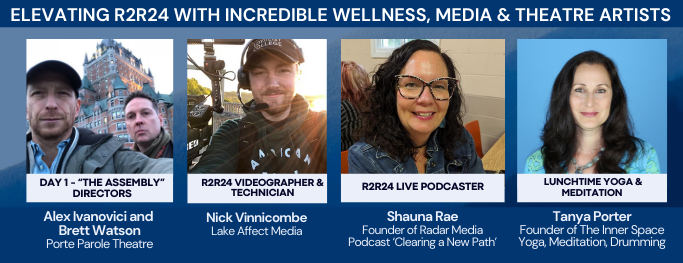
A documentary presentation, podcasting, and yoga – we have it all. These artists and masters in their fields will join us at R2R24. Read more about each of them!

A documentary presentation, podcasting, and yoga – we have it all. These artists and masters in their fields will join us at R2R24. Read more about each of them!
The deadline to book a room with the conference rate at the Benmiller Inn & Spa is Monday, Sept 23rd.
The Benmiller Inn & Spa is located just outside of Goderich and a 15-minute drive to the Blyth Memorial Community Hall. It offers a limited number of rooms with discounts between 15 – 25%.
Reserve today! Please mention Rural Talks to Rural Conference when booking to receive the applicable discounts.
Benmiller Inn & Spa: (519) 524-2191
More accommodation options are available – click here.
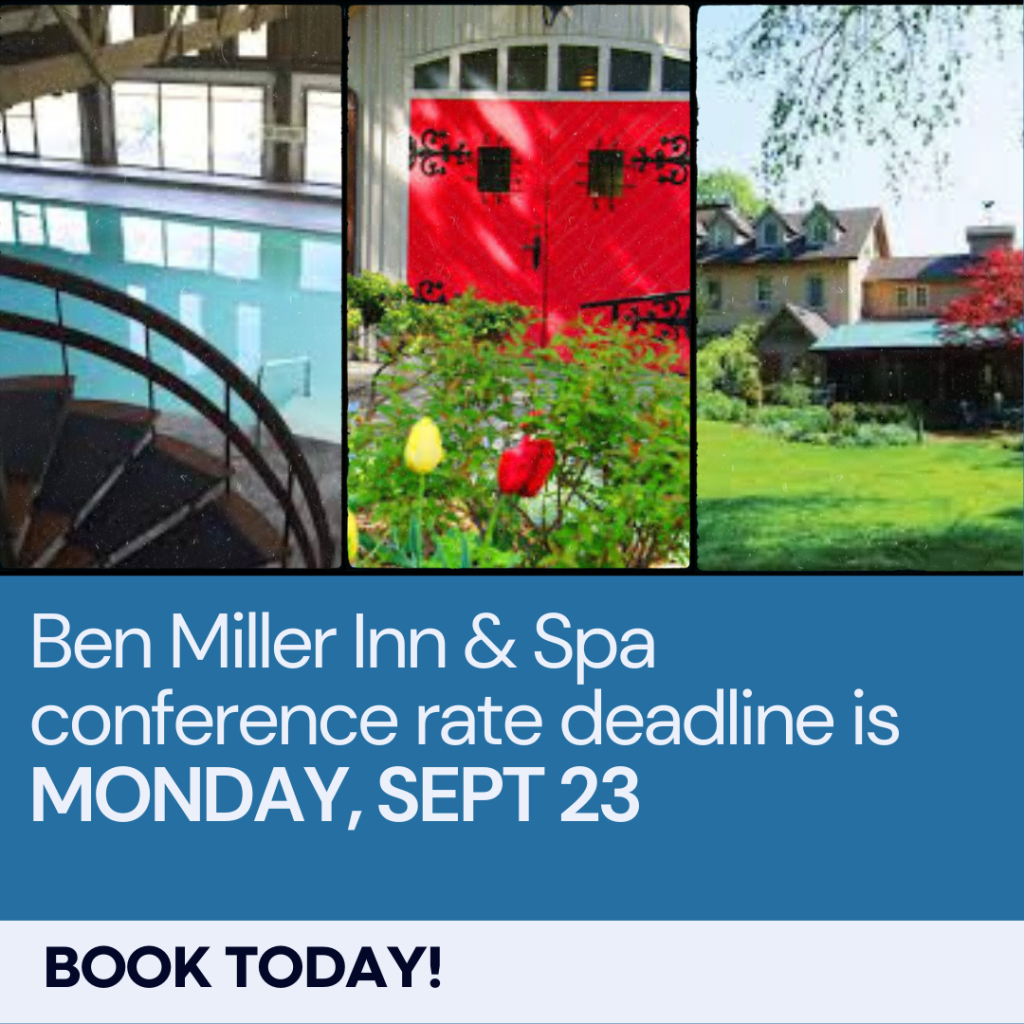
We are excited to showcase the speakers, presenters, facilitators, and signature sessions.
Conference Agenda
To learn more about the conference including registration, accommodations and sponsors, click here.
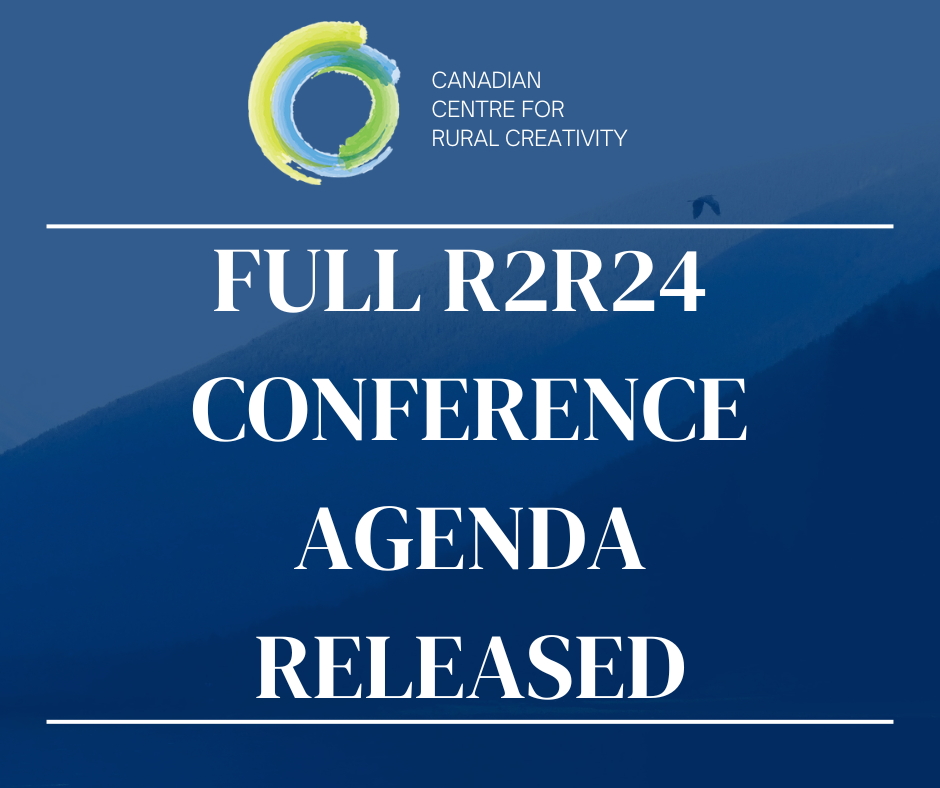
We are excited to host this year’s conference in Blyth AND showcase some incredible places to stay in Blyth and the surrounding areas. We have secured conference pricing at some of the locations that include:
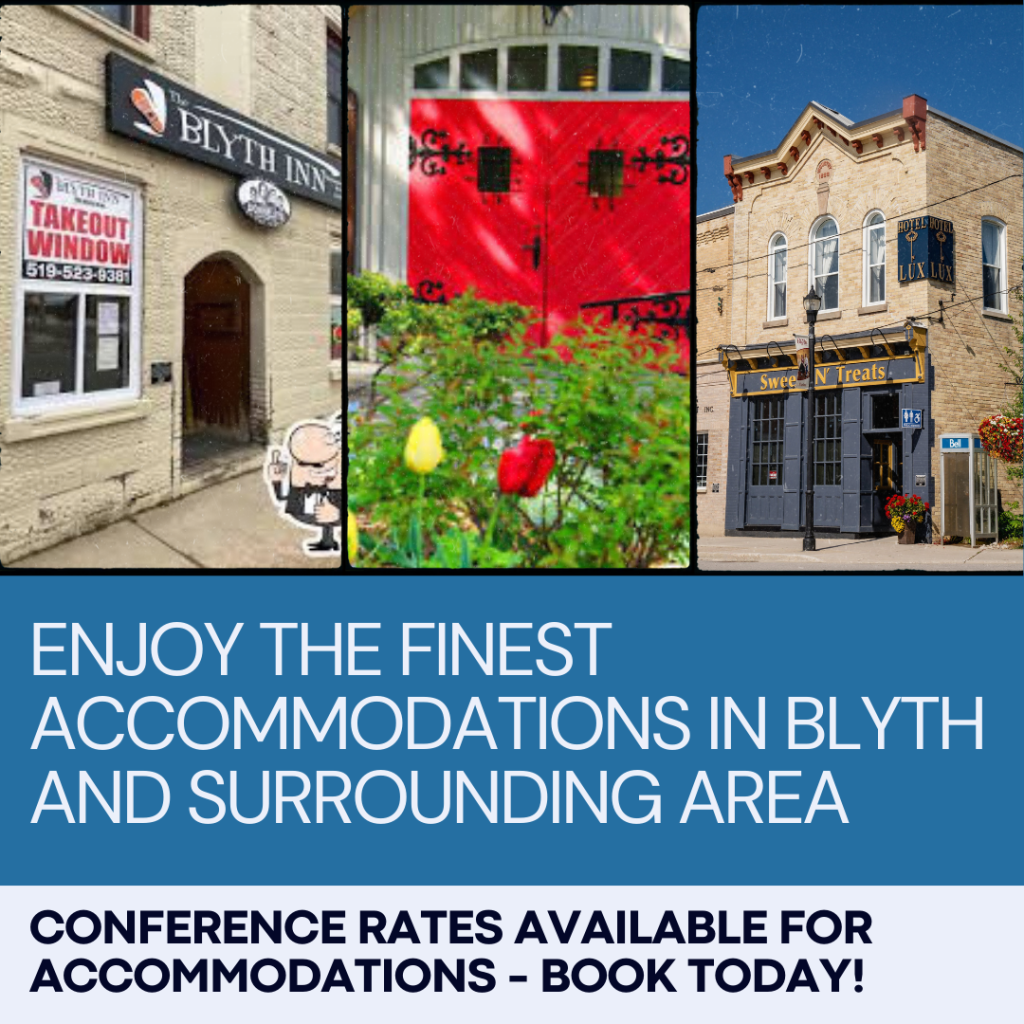
The Blyth Inn: 20% discount from the posted rate – https://blythinn.ca/
Benmiller Inn & Spa
The Benmiller Inn & Spa is located just outside of Goderich and a 15-minute drive to the Blyth Memorial Community Hall. It offers a limited number of rooms with discounts between 15 – 25%.
Shout out to the Hotel Lux, and Corner Farm Cottage for further conference rates – rooms are already booked!
Reserve today! Please mention Rural Talks to Rural Conference when booking to receive the applicable discounts.
More accommodation options are available – visit our website to learn more.

Attention all students! Conference registration scholarships and student rates are available to attend the Rural Talks to Rural (R2R) Conference this October 16-18 in Blyth, Ontario.
We are excited to announce 10 Youth Scholarships are available for R2R24. The scholarships cover the registration fee for the 3-day conference. Full-time students between the ages of 16 and 30 are eligible.
Download the application – https://www.ruralcreativity.org/wp-content/uploads/FINAL-R2R24-Youth-Scholarship-Application-2.pdf
R2R, hosted by the Canadian Centre for Rural Creativity (CCRC), continues to be the meeting space to learn, share and connect with rural communities, rural-focused organizations, universities, government officials, economic developers, farmers, and entrepreneurs.
This is the fifth R2R conference in the past ten years and gathers people passionate about our rural communities: artists, scientists, farmers, students, researchers, local knowledge keepers, entrepreneurs, economic developers, environmentalists, community development officers, and rural organizations.
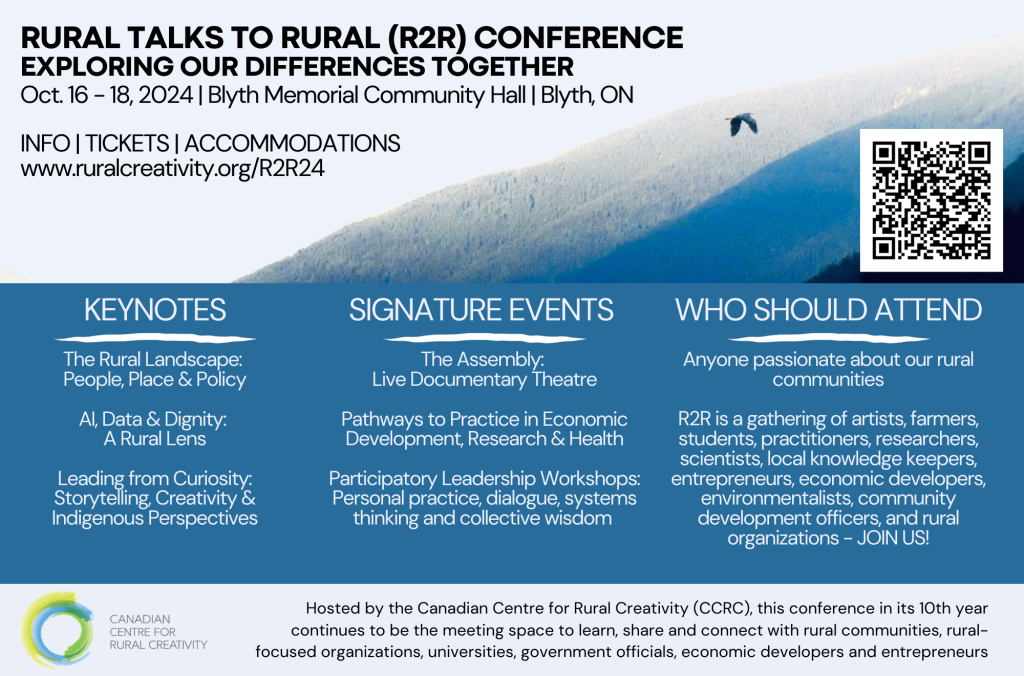
In our 10th year of producing Rural Talk to Rural conferences R2R24 in Blyth at the Memorial Hall promises to be a good one. Folks coming in from around the corner and from around the world to explore our differences together.
R2R is at the intersection of art, science, and local knowledge. It brings people together who have never met and through stories, workshops, keynote addresses, and panel discussions, explore contemporary issues in an environment of respect and hope. You’ll also enjoy great food and drink created by our finest chefs and brew/cider/winery houses – all coming from the bounty of Huron County in the fall of 2024.
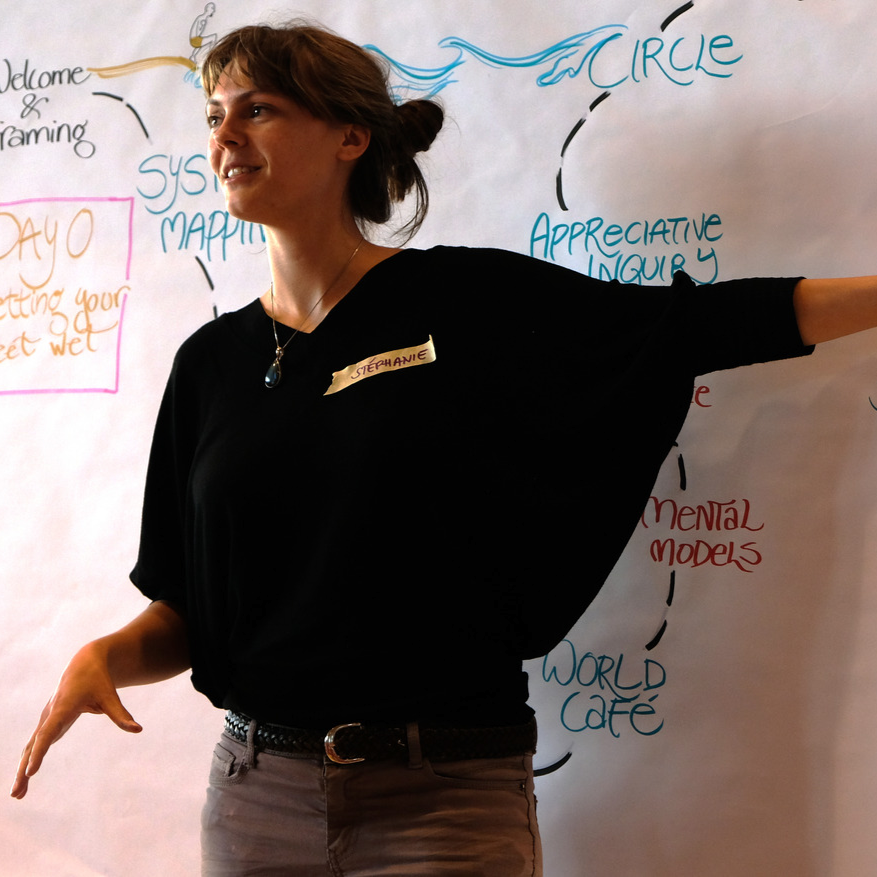
Stéphanie Heckman
Facilitator & Visual Illustrator
IN-PERSON Art of Hosting Lead Facilitator
Stéphanie Heckman Facilitator & Visual Illustrator IN-PERSON Art of Hosting Lead Facilitator Stéphanie, along with Ailsa Clark and Casandra Bryant will facilitate the workshops with in-person conference delegates
Stéphanie Heckman is a visual facilitator, working internationally from Belfast, Northern Ireland. She distills the essence of complex collective conversations and translates these in real-time into hand-drawn visual summaries that help overcome language and knowledge barriers to engage a wider audience. She has 8 years of experience working as an independent visual practitioner, prioritizing work with organisations on climate action, peace & reconciliation and leadership development. She has collaborated with UN Climate Change to visually translate their highly technical conversations during the last three COPs, on topics ranging from collective progress towards the Paris goals, Indigenous involvement in the multilateral climate process, labour rights and just transitions, and the Ocean.
Ailsa Clark – Founder of Inspiralba, Scotland
Day 2 Story Circle Presenter
Ailsa Clark of Inspiralba in the Scottish Highlands and Islands, joins Dr. Wendy Wong and Ellie Joseph, Mohawk Elder to share stories about our current direction of travel and how leading from curiosity helps to explore our differences together.
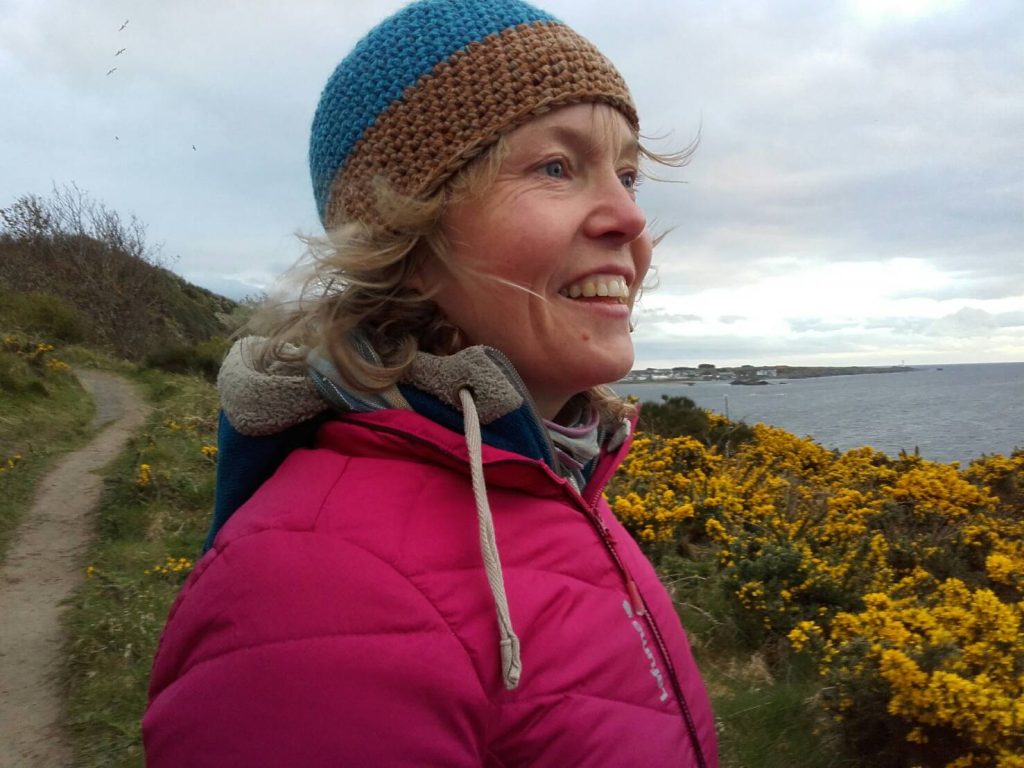
Born and raised in Argyll, Scotland with experience working locally, nationally, and in Australia and South Africa. Ailsa Clark founded Inspiralba in 2009, recognizing the passion and determination in rural communities and the significant hoops and bureaucracy people have to navigate. She has been able to bring experience from income generation, business, networking, and community development into practice through the inter-related strands of Inspiralba’s work; coordinating third sector delivery of employability opportunities with a focus on tailored person-centred support as well as provision of business support for social and community enterprises across Argyll and the Islands. She has also provided an advocacy role for rural social enterprise as well as access and progression routes for young people in the rural economy. Established www.ruralsehub.net in 2019 to support networking, collaboration, information, and learning resources for the rural social and community-led enterprise bringing experience and connections from across Europe and further afield.
https://www.inspiralba.org.uk/
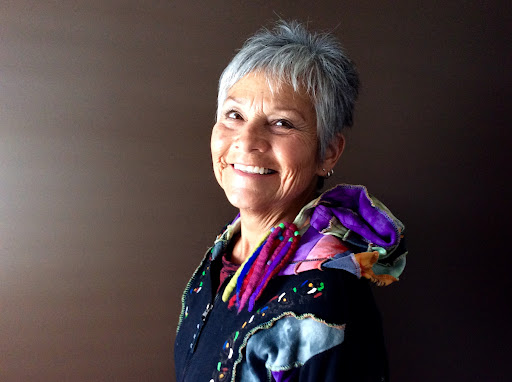
Ellie Joseph – Mohawk Elder from Six Nations
Day 2 Story Circle Presenter
Ellie Joseph, Mohawk Elder joins Dr. Wendy Wong and Ailsa Clark to share stories about our current direction of travel and how leading from curiosity helps to explore our differences together.
Ellie Joseph, Mohawk Elder from Six Nations is of the Mohawk Nation, Turtle Clan, born, raised, and still lives on the Six Nations Reserve along the bank of The Grand River. She retired from a thirty-four-year tenure as a classroom teacher of Elementary School in our public school system a decade ago but remains an active volunteer in the education field, and tutors privately.
After paddling on the sixteen-day Two Row Renewal Campaign from Albany to Manhattan, New York, on The Hudson River in 2013, Ellie Joseph was one of four participants who established what is now known as “Two Row on the Grand.” Functioning as a grassroots volunteer committee, they have watched this project’s participation increase in size. Two Row on the Grand is an annual nine-day family-oriented camping and paddling excursion on The Grand River, starting in Cambridge and ending at Port Maitland, Lake Erie.
Dr. Wendy H. Wong
Day 2 Keynote Address & Story Circle Presenter
Dr. Wendy H. Wong unravels the sticky issues of AI and data when it comes to human rights, global governance, international relations and, especially, data rights through a rural lens.
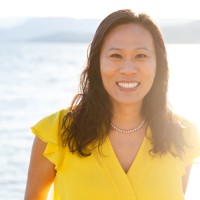
Award-winning author and professor of Political Science and International Relations at the University of British Columbia Okanagan in the department of political science. Wendy’s interests include emerging technologies, human rights, data/AI, global governance, NGOs, social movements, non-state actors, and humanitarian assistance.
This B.C.-based scholar is among the finalists for the 2024 Lionel Gelber Prize. She is nominated for her book, We, The Data: Human rights in the digital age which highlights how pervasive data collection and tracking are in everyday life. Laying the foundation for future policy, We, The Data calls for human rights to be extended to encourage human potential when data threatens to complicate how we progress.
She has also co-authored two other award-winning books, Internal Affairs and The Authority Trap (with Sarah S. Stroup), both published by Cornell University Press and penned dozens of peer-reviewed articles and chapters. Dr. Wong has appeared in outlets such as the CBC, The Globe and Mail, The Toronto Star, and The Conversation.
Dr. Wendy H. Wong is a Member of the Royal Society of Canada’s College of New Scholars, Artists and Scientists. She Is currently Faculty Affiliate at the Schwartz Reisman Institute for Technology and Society (SRI) at the University of Toronto in Global Governance and Civil Society. From 2012-2017, Dr. Wong was Director of the Trudeau Center for Peace, Conflict, and Justice at the Munk School of Global Affairs and Public Policy.